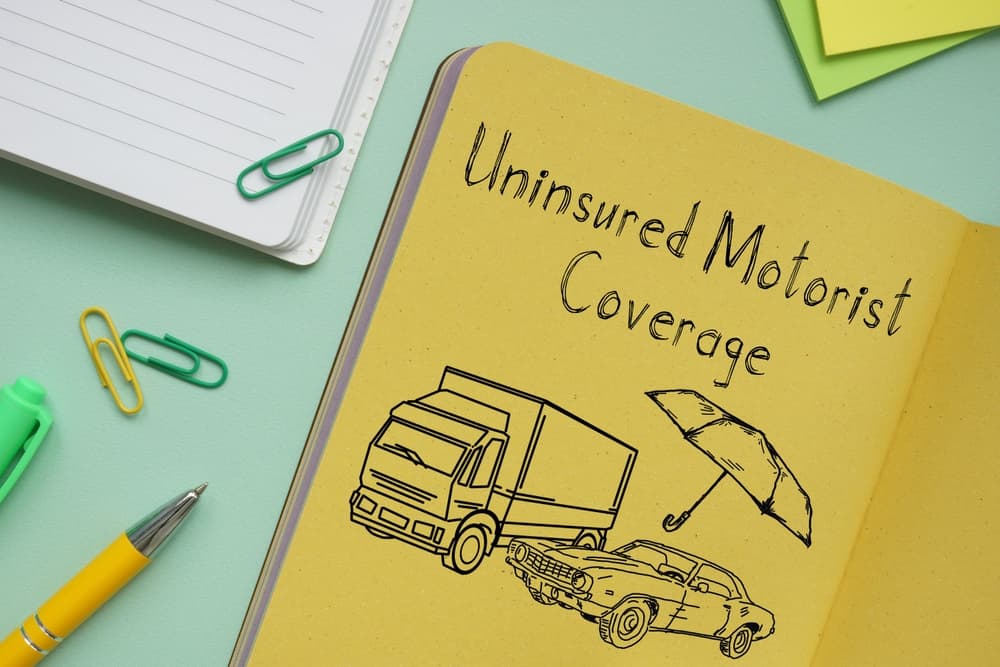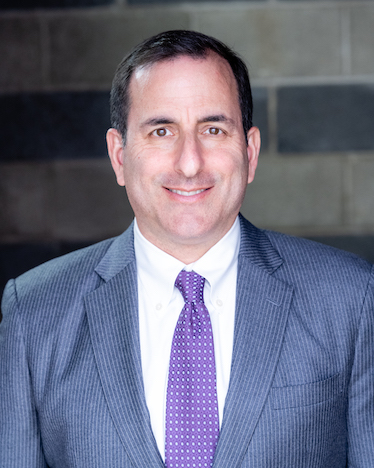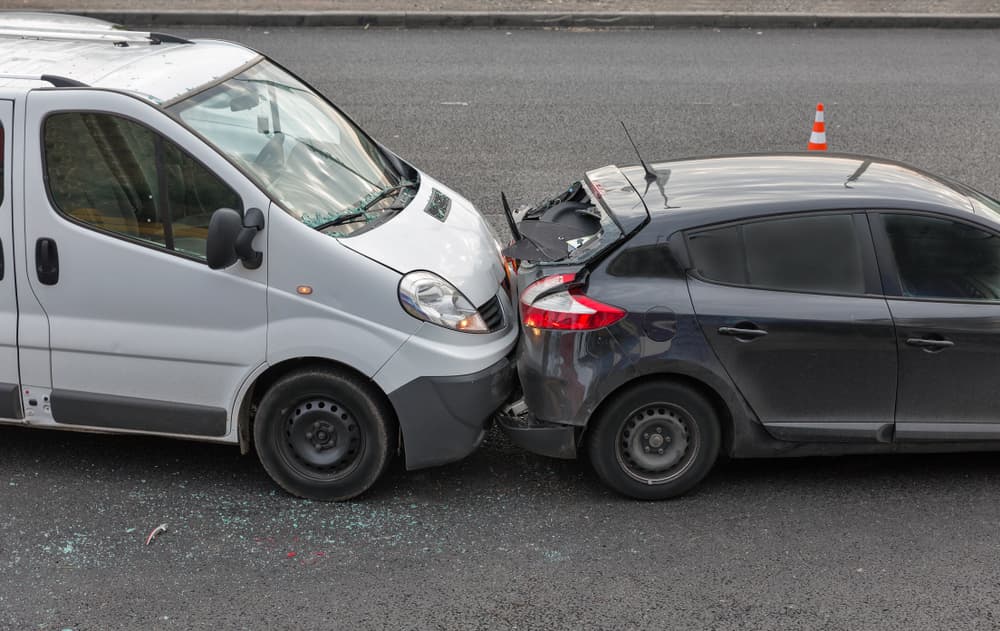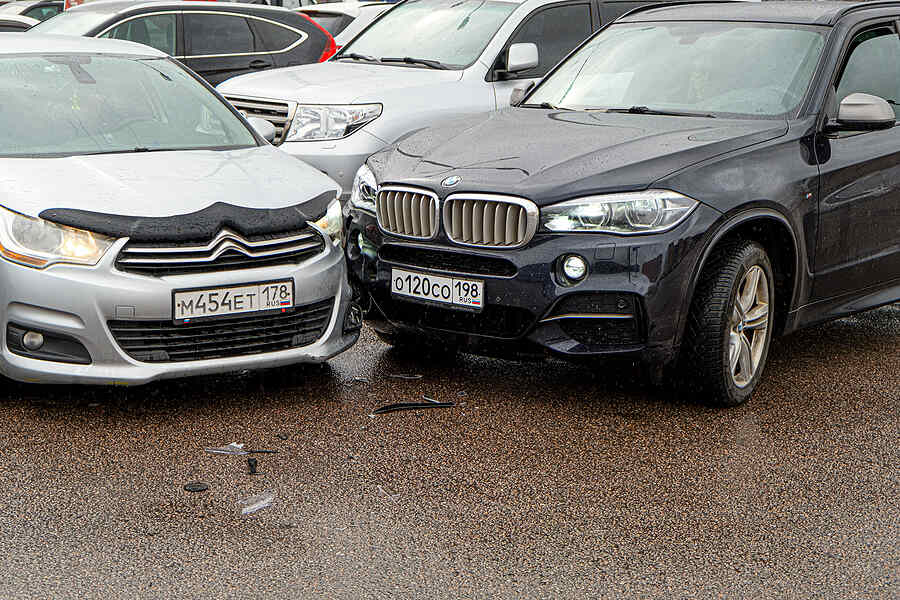A reckless driver with no insurance just blindsided you. Or maybe someone whose bare-bones policy can't begin to cover the staggering costs of your injuries and damages hit you.
Now, you're facing an avalanche of medical bills, lost wages, car repairs, and other expenses—with no idea how you'll pay for it all.
The good news is you have uninsured/underinsured motorist (UM/UIM) coverage as part of your own auto insurance policy. The bad news? Getting the insurance company to actually pay out the benefits you deserve can feel like a never-ending battle.
But you don't have to fight them alone. An experienced car accident lawyer can file a successful UM/UIM claim and secure the full and fair compensation you deserve.
Understanding UM/UIM Coverage

First, let's clarify what exactly UM/UIM coverage is and how it works. As the name suggests, UM/UIM are two different but related types of auto insurance:
- Uninsured Motorist (UM) coverage provides protection if you are hit by a driver without auto insurance. It can also apply in hit-and-run accidents where the at-fault driver flees the scene and cannot be identified.
- Underinsured Motorist (UIM) coverage provides protection if a driver with auto insurance hits you, but their policy limits are too low to fully cover your damages.
In both cases, you would file a claim with your insurance company to access your UM/UIM benefits since you can't pursue a claim against the other driver's nonexistent or insufficient insurance, which leaves you with losses. Illinois does not require that you purchase UM/UIM coverage, but all insurers must offer it, and most drivers choose to include it in their policies.
What Damages Does UM/UIM Cover?
UM/UIM coverage can pay for a wide range of damages after an accident with an uninsured/underinsured driver, including:
- Medical expenses
- Lost wages
- Pain and suffering
- Vehicle repairs
- Rental car costs
- Other accident-related costs
That sounds straightforward enough. If an uninsured/underinsured motorist hits you, you can turn to your own UM/UIM coverage to pay for your losses.
Unfortunately, it's often not that simple in practice. Like any business, insurance companies are always looking for ways to boost their bottom line, which means minimizing payouts whenever possible.
As a result, UM/UIM claims frequently get unfairly reduced or denied altogether based on all sorts of excuses: that your injuries aren't as serious as you claim, that your damages are unrelated to the accident, that you were partially at fault for the crash, that you failed to pay your premiums or notify them of the accident promptly, and so on.
Should I Accept the First Offer from My Insurance Company after Filing a UM/UIM Claim?
No, you should not accept the first offer from your insurance company after filing an uninsured/underinsured motorist (UM/UIM) claim without careful consideration and review.
Here's why:
- Lowball offers: Insurance companies, even your own insurer, are in the business of making money. They may start with a lowball settlement offer in the hopes that you'll accept it and save them money, even if it's far less than your claim is actually worth.
- Incomplete information: When the insurance company makes an initial offer, they may not have a complete picture of your damages, especially if you're still undergoing medical treatment or have not yet reached maximum medical improvement (MMI). Settling too soon could mean leaving money on the table.
- Failing to account for all damages: The first offer may not fully account for all your damages, such as future medical expenses, lost earning capacity, pain and suffering, or other less tangible losses. An experienced attorney can help you identify and document all compensable damages.
- Pressure tactics: Insurance adjusters may pressure you to accept a quick settlement, implying that it's the best offer you'll get or that you'll face delays or difficulties if you don't accept it. Don't let these tactics sway you into settling for less than you deserve.
- Waiving your rights: Accepting a settlement offer typically requires signing a release that waives your right to pursue further compensation, even if you later discover additional damages. This is why it's crucial to be certain any settlement is full and fair before accepting.
Before accepting any settlement offer, it's wise to consult an experienced car accident lawyer who handles UM/UIM claims. They can review the offer, advise you on whether it's fair, and negotiate with the insurance company on your behalf to seek a more favorable settlement.
Remember, once you accept an offer, there's usually no going back, so it's important to make an informed decision and not feel pressured to settle prematurely.
What Are the Pros and Cons of UM/UIM?
Here are some potential pros and cons of uninsured/underinsured motorist (UM/UIM) coverage:
Pros:
- Financial protection: UM/UIM coverage can provide critical financial assistance if you're injured in an accident caused by a driver with no or insufficient insurance. It can help pay for medical bills, lost wages, pain and suffering, and other damages that would otherwise come out of your own pocket.
- Peace of mind: UM/UIM coverage will protect you even if an uninsured or underinsured driver hits you. This can provide valuable peace of mind every time you hit the road.
- Relatively affordable: UM/UIM coverage is generally fairly affordable to add to your auto insurance policy, especially compared to the potential costs of an accident with an uninsured/underinsured driver.
- Covers your passengers: UM/UIM coverage typically extends to passengers in your vehicle as well, providing important protection for your loved ones and friends.
- Can cover hit-and-run accidents: UM coverage can also apply in hit and run situations where the at-fault driver flees the scene and cannot be identified.
Cons:
- Additional premium: While relatively affordable, UM/UIM coverage does increase your overall auto insurance premium. Some drivers may feel this extra cost is not worth it, especially if they have health insurance and other financial resources to cover accident-related expenses.
- Coverage limits: UM/UIM coverage has limits, meaning it will only pay out up to a certain amount. If your damages exceed these limits, you may still face out-of-pocket costs.
- Dealing with your own insurance company: When you file a UM/UIM claim, you're dealing with your own insurance company, not the at-fault driver's insurer. Your insurer may still try to minimize or deny your claim to protect their bottom line.
- Doesn't cover property damage in some states: In some states, UM/UIM coverage only applies to bodily injury damages, not property damage to your vehicle. For this, you may need separate uninsured motorist property damage (UMPD) coverage.
- May require legal action: If your insurance company refuses to fairly compensate you under your UM/UIM coverage, you may need to take legal action against them to enforce your rights, which can be a lengthy and stressful process.
Overall, for most drivers, the peace of mind and financial protection offered by UM/UIM coverage outweigh the potential drawbacks. However, the decision to purchase and how much coverage to get depends on your individual circumstances, risk tolerance, and budget.
How an Attorney Can Help with Your UM/UIM Claim
When you're already facing the stress and trauma of a serious car accident, dealing with an uncooperative insurance company and jumping through hoops to prove your UM/UIM claim can feel completely overwhelming.
Don’t give up and accept whatever lowball settlement they offer. Don't make this costly mistake.
An experienced car accident lawyer can handle every aspect of your UM/UIM claim and fight for the full and fair compensation you deserve.
Here are some specific ways an attorney can help you:
- Explaining your rights and options. UM/UIM claims can be complex. An attorney can clarify how UM/UIM coverage works, what your policy does and doesn't cover, and what you must do to protect your rights.
- Gathering evidence to support your claim. To get your UM/UIM benefits, you'll need strong evidence of the other driver's uninsured/underinsured status and the severity of your injuries and damages. An attorney can investigate the accident and gather police reports, medical records, witness statements, and other crucial evidence to build a compelling case.
- Placing the insurance company on notice. After any accident, you need to notify the insurance company promptly. An attorney can do this properly to avoid jeopardizing your UM/UIM claim.
- Documenting your damages. It's not enough to tell the insurance company you've suffered damages—you need to prove it with detailed documentation. An attorney can track all your accident-related expenses and losses, including medical bills, pay stubs showing missed work, vehicle repair estimates, and concrete examples of your pain and suffering.
- Negotiating with the insurance company. Insurance adjusters are trained to convince you to settle for less than you deserve. An experienced attorney knows their tactics and how to effectively negotiate on your behalf. Often, simply having a lawyer advocating for you will convince the insurer to stop lowballing and make a fair offer.
- Taking your case to court if needed. If the insurance company refuses to make a reasonable settlement, an attorney can file a lawsuit and fight for your full UM/UIM benefits at trial. Insurance companies know which attorneys have a track record of success in court and will often increase their settlement offers to avoid facing them before a jury.
- Handling the paperwork and red tape. UM/UIM claims come with mountains of confusing paperwork, strict deadlines, and frustrating bureaucratic red tape. An attorney can take care of all of this for you so you can focus on healing and moving forward with your life.
- Maximizing your compensation. Perhaps most importantly, an experienced car accident lawyer will know how to identify all possible sources of compensation and build a strong case to get you every dollar you deserve. Without an advocate in your corner, you risk missing out on significant funds you need to rebuild after a serious crash.
What to Look for in a UM/UIM Attorney

While a skilled car accident lawyer can make a huge difference in the outcome of your UM/UIM claim, not all attorneys are created equal.
When choosing a lawyer to handle your case, look for:
- Experience. UM/UIM claims are a complex subspecialty of car accident law. Make sure your attorney has specific experience successfully resolving these types of cases.
- Resources. Building a strong UM/UIM case often requires significant upfront resources to investigate the crash, gather evidence, and hire experts. Choose a law firm with the financial strength to advance these costs while your case is pending.
- Reputation. Look for an attorney with a track record of success and a strong reputation in the legal community. Check online reviews, professional ratings, and what past clients say about their experience.
- Personal attention. Your UM/UIM claim is deeply personal to you. Make sure your attorney understands this and will give you the individual attention, responsiveness, and compassion you deserve. You should never feel like just another case file.
Contact Our Chicago Car Accident Lawyer to Discuss Your Case Today
At Abels & Annes, P.C., our attorneys have decades of experience handling complex UM/UIM claims for car accident victims throughout the Chicago area. We understand the physical, emotional, and financial toll a serious crash can take, especially when the at-fault driver has no or inadequate insurance.
Let us take the burden of dealing with the insurance company off your shoulders so you can focus on what really matters - your health and recovery.
If an uninsured or underinsured motorist injured you or a loved one, contact our experienced personal injury attorneys today at (312) 924-7575 or through our online form for a free consultation. We're here to explain your rights, explore your legal options, and fight for the full and fair compensation you need to move forward after a serious accident.



